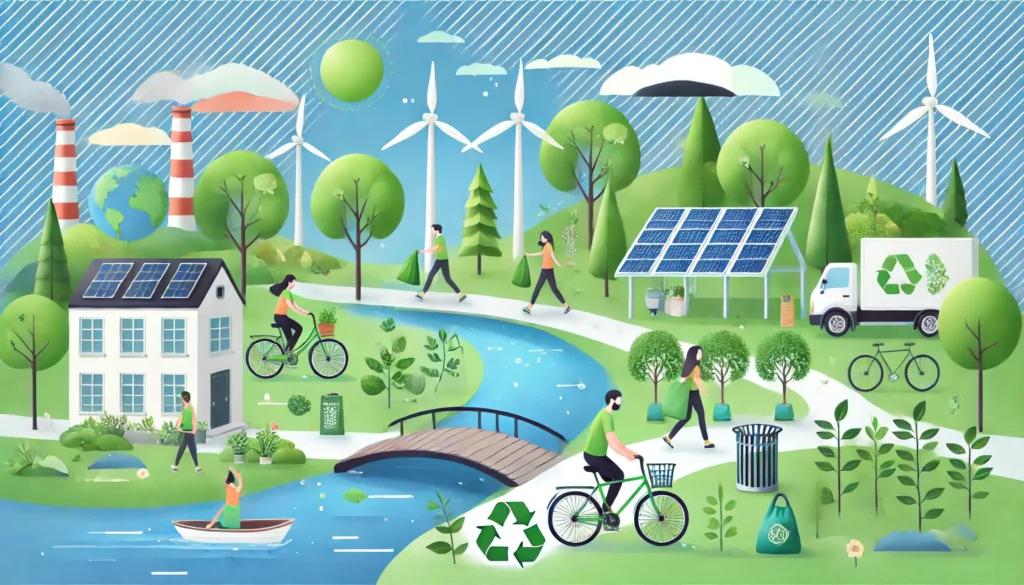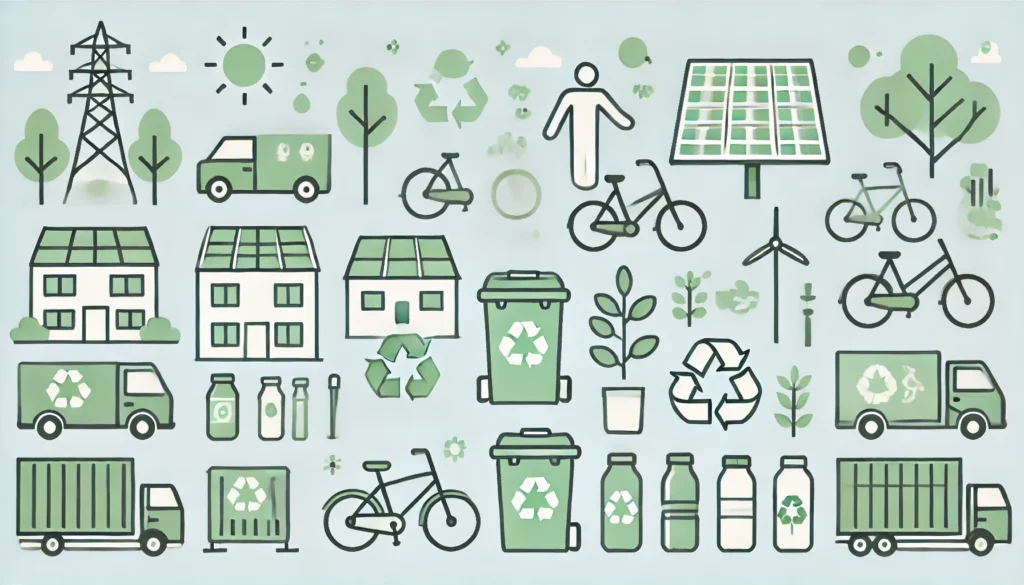Mahatma Gandhi, the father of the Indian independence movement, was not only a political leader but also a visionary when it came to living sustainably. His philosophy of simple living and high thinking continues to inspire people worldwide. Mahatma Gandhi’s idea of a sustainable lifestyle was rooted in the belief that individuals should lead a life that is harmonious with nature, minimizing waste and consumption, and promoting self-reliance. This blog post will explore how Mahatma Gandhi’s principles of sustainability can serve as a guide for our modern-day lifestyles.
🌿 1. Minimalism and Simple Living
Mahatma Gandhi famously practiced minimalism, which is key to a sustainable lifestyle. He believed in using only what was necessary and avoiding excess consumption. This mindset of less is more helps reduce waste and conserve resources, principles that align with today’s need to reduce carbon footprints.
Mahatma Gandhi used handmade khadi clothes, promoted local products, and discouraged the use of imported or industrial goods. His use of locally sourced, handmade goods was an early form of supporting sustainable production.
🌍 2. Self-Reliance (Swadeshi)
Mahatma Gandhi’s concept of Swadeshi, or self-reliance, encouraged people to produce their own goods and use local resources. He believed that relying on local products not only reduced dependency on imports but also fostered economic and environmental sustainability.
By spinning his own clothes and encouraging others to use handmade khadi, Mahatma Gandhi promoted the idea of using locally sourced, eco-friendly products, which reduced the environmental costs of transportation and mass production.
♻️ 3. Waste Reduction and Recycling
One of Mahatma Gandhi’s core beliefs was waste minimization. He encouraged the repair and reuse of items to avoid waste. In today’s context, this principle can be applied by embracing the 3 R’s: Reduce, Reuse, and Recycle.
Mahatma Gandhi lived in a simple ashram where he used the least possible resources and made use of handmade, reusable tools, which aligns with the modern concept of zero waste living.
🌱 4. Environmental Stewardship
Mahatma Gandhi believed that humans are stewards of the environment and must take care of nature. He saw the exploitation of natural resources as a form of violence and promoted practices that were in harmony with nature.
His idea of using local products, minimizing consumption, and avoiding industrial production resonates with modern ideas of eco-friendly living and sustainable agriculture.
👫 5. Community Living and Cooperation
Mahatma Gandhi’s idea of sustainable living was rooted in community cooperation. He emphasized the importance of working together to build a self-sufficient and eco-friendly society. His ashram life was an example of how communities can live sustainably by sharing resources and living in harmony with the environment.
Mahatma Gandhi’s ashrams promoted shared farming, collective cooking, and the use of natural resources in moderation, which reflects today’s communal eco-villages and sustainable living communities.
Conclusion
Mahatma Gandhi’s idea of a sustainable lifestyle was far ahead of his time. His principles of minimalism, self-reliance, waste reduction, environmental stewardship, and community living provide a powerful framework for living sustainably in the 21st century. By following Mahatma Gandhi’s philosophy, we can contribute to a more balanced and eco-friendly world.
Discover more from Green Ecosystem - Renewable Energy, Agriculture, and Environmental Sustainability
Subscribe to get the latest posts sent to your email.


